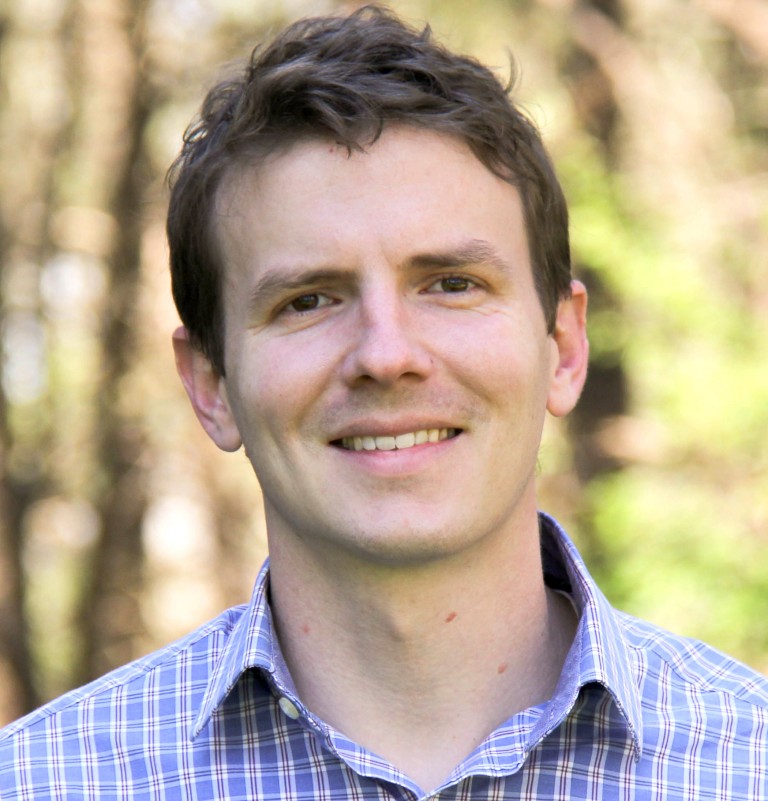Kern develops new course on energy system analytics and modeling
May 16, 2016
Jordan Kern, research assistant professor at the Institute for the Environment at UNC-Chapel Hill, recently developed a new undergraduate environmental studies course in energy analytics. The course, “ENEC 490- Energy Analytics,” will focus on energy system analytics and modeling, while building useful skills in coding and data management.
Kern, who received a B.S. in environmental science and an M.S. and Ph.D. in environmental science and engineering, all from UNC-CH, said his inspiration for the course came from his experience as an undergrad.
“The new course is designed to focus on energy. It’s also as close as I can make it to an engineering course,” Kern said. “I think it’s a fair assessment that this is something I would’ve enjoyed as an undergrad. I tried to make it mirror a lot of the skills and techniques that I find useful now, which I think undergrads would benefit from learning. But also I’m trying to sort of pivot to what I see as a growing field and an opportunity professionally for students as they come out.”
Kern was the 2015 recipient of the competitive Junior Faculty Development Award for his energy analytics course proposal and received $7,500 to develop the project. Any permanent full-time, salaried member of the UNC faculty who holds the rank of assistant professor or associate professor can apply for the Junior Faculty Development Award.
Kern said winning the award allowed him to find the time and money to create the course.
“A lot of my salary is funded through grants, so if I want to do something different, other than work on research projects, I have to go find money to do it,” Kern said. “This was a way for me to carve out a couple months of my year where I could just sit down and design the course, which otherwise I would have to do every night at 2 a.m.”
Kern said that although his main role is as a researcher, he finds himself teaching more because he enjoys it and because there is a desire for more energy related courses at UNC, which fits his expertise.
“My interest in energy began in college, although even when I came through in 2007 there weren’t many opportunities to pursue that as an undergrad here,” Kern said. “I got a job after undergrad at the Department of Energy in D.C. and I worked there for a year. That gave me an opportunity to work directly on the topic. I think by doing that I realized I was more interested in it, but even when I came back here for grad school the opportunities to really pursue that were limited. I had to make it more of an independent study and work with professors at other institutions.”
Now Kern researches a combination of water, energy and finance.
“My two-minute elevator speech is that I study how earth systems, like weather and climate, and environmental systems, like water quality, emissions and ecosystems, interact with human engineering systems, both water resources and electric power systems, and how all of that interacts with economic and financial markets,” Kern said. “There are a lot of dynamics between them and a lot of uncertainties involved.”
Kern said he used his experience teaching another environmental studies course, “ENEC 307- Energy and Material Flow through the Environment and Society,” to create his new energy analytics course.
“I developed ENEC 307, so I know how much work it is,” Kern said. “That’s why I’m blocking out two or three months to do this.
“It’s going to be a lot different. The class I already teach is more lecture oriented so I’m up in front of the class for an hour and 15 minutes talking, which can be a little nerve wracking. But this is going to be a flipped classroom approach, so I will deliver all the lectures on YouTube and then when people show up for class we’re going to problem solve and code.”
Suggested requirements for Kern’s new course is that students have taken one statistics and one computer science course. Energy Analytics will be taught this fall on Tuesdays and Thursdays from 2 p.m. to 3:15 p.m.
